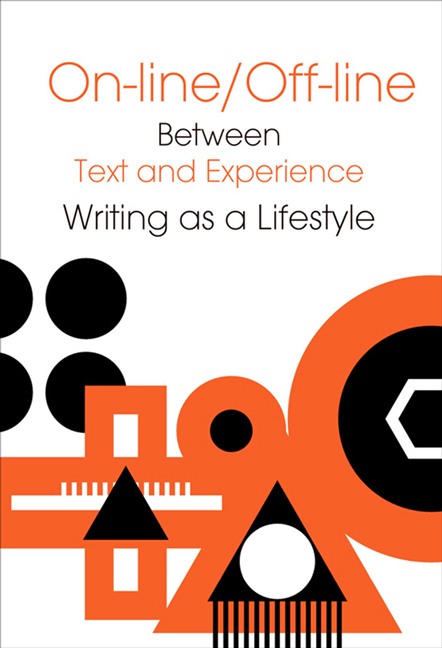Book contents
- Frontmatter
- Contents
- Editors’ Introduction
- ON-LINE/ OFF-LINE
- Literate Existence in the Digital Space. Contemporary Traces of Identity
- Text, Writing, School in Anthropological Perspective
- The Practice of Writing Fan Fiction: A Fan Fiction Writer's Tutorial
- I Write. You Write. They Write. The Literary Works of Fandom as a Factor in Integrating the Community
- Approaches Towards Shame in Contemporary Polish Literature
- People You May Know: Homosexual Men's Identity in the Time of Social Networking Services
- Contemporary Polish Essays: In Search of the Aura of Paintings and Photographs
- The Hybrid Work of Art as Experience
- Reincarnations of the Word: Media, Genres, Practices
- LITERATURE AND CONVERGENCE
Text, Writing, School in Anthropological Perspective
from ON-LINE/ OFF-LINE
Published online by Cambridge University Press: 12 January 2018
- Frontmatter
- Contents
- Editors’ Introduction
- ON-LINE/ OFF-LINE
- Literate Existence in the Digital Space. Contemporary Traces of Identity
- Text, Writing, School in Anthropological Perspective
- The Practice of Writing Fan Fiction: A Fan Fiction Writer's Tutorial
- I Write. You Write. They Write. The Literary Works of Fandom as a Factor in Integrating the Community
- Approaches Towards Shame in Contemporary Polish Literature
- People You May Know: Homosexual Men's Identity in the Time of Social Networking Services
- Contemporary Polish Essays: In Search of the Aura of Paintings and Photographs
- The Hybrid Work of Art as Experience
- Reincarnations of the Word: Media, Genres, Practices
- LITERATURE AND CONVERGENCE
Summary
Abstract
This paper attempts to reveal anthropological structures in the following categories: text and writing; the categories that nowadays require cultural, historical and institutional rel-ativization. The paradigm being maintained is that writing is a mental, individualistic cre-ation and a freely chosen way of life which is a result of late modernity. Moreover, even to-day it is not the only paradigm and nor is it universally acceptable. This is emphasized and developed upon in the text by using examples from current school exercise books. School – as the main institution of literate initiation, where one experiences one'sfirst mass contact with literature – is an institution in which the practice of writing is regulated by school breaks and is specifically managed for capitalist society's dual division of time. Writing is specifically a tool which is a well-defined, perceptual and social discipline. However, this discipline does not exclude creativity, as long as we go by its late-modern definition.
Key words: text and writing, anthropological perspective, school, creation, exercise books
What we understand first in discourse, as Paul Ricoeur wrote in reference to Heidegger's Being and Time, is not another person, but a „pro-ject, that is, the outline of a new way of being in the world. Only writing […] in freeing itself, not only from its author and from its original audience, but from the narrowness of the dialogical situation, reveals this destination of discourse as projecting the world (Paul Ricoeur 1976: 37). Writing as technology, as Walter J. Ong wrote, „is utterly invaluable and indeed essential for the realization of Fuller, interior, human potentials” […] Writing heightens consciousness.[…] The use of technol-ogy can enrich the human psyche, enlarge the human spirit, intensify its interior life (Ong 1991: 82–83).
Both cited authors have had a distinct impact on both literary studies and the theory of literacy as treated as a crucial medium for Western moder-nity. Both of them were zealous apologists of cultural institutions such as philosophy and literature, whose modern forms have had a decisive impact on their understanding of writing. In this article, it is argued that their understanding of writing as a creative and individualistic activity, enabling one to work in a new and more conscious way in cultural reality, and taking place between the disembodied text and the equally disembod-ied mind, demands relativization.
- Type
- Chapter
- Information
- On-line/Off-lineBetween Text and Experience: Writing as a Lifestyle, pp. 35 - 48Publisher: Jagiellonian University PressPrint publication year: 2016



